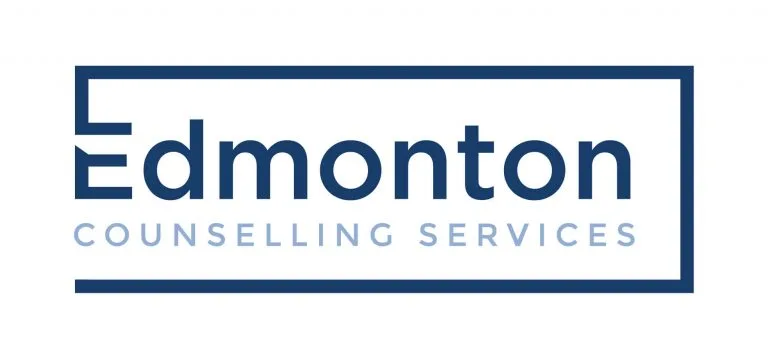Addiction is a complex and debilitating condition that affects millions of people around the world. It can take many forms of substance abuse, gambling, sex, technology, food, or even work and can have a profound impact on one’s physical, mental, and emotional health. Overcoming addiction is not an easy journey, but it is possible with the right support, tools, and mindset. One of the most effective avenues to reclaim your life is through Addiction Counselling. Through this blog, you will be reading about overcoming all the challenges and how the addiction can be improved. So, stay consistent with us till the end.
Overview of Addiction Counselling
Addiction counselling offers structured support to help individuals understand the underlying causes of their addiction, manage cravings, and rebuild their lives. By taking a therapeutic approach, counselling addresses not just the behaviours associated with addiction but also the emotional and psychological triggers that sustain it.
Essential Steps in Addiction Counselling to Overcome Challenges
Acknowledging the problem
The first and probably the most important process of addiction counselling is the error bookmark not defined. Some patients are extremely resistant to the fact that they are sick, or that they are addicted to a substance or have rude behaviour. This step involves the willingness to be open and accept the notion that in order to improve, more needs to be done. Thus, counsellors for Online Counselling for Addiction assist people in realizing the effects of addiction, including the effects on personal, family, and social life. They set up society’s healthy and tolerant political climate, allowing the clients, who turn to them for help, to freely discuss everything that they are going through without having to worry about judgment.
Developing coping strategies
After the root cause of the addiction has been established, the next thing is to find new healthy behaviours that can replace the addictive ones. People use alcohol/drugs and/or engage in other addictions as a way of escaping emotional suffering, dealing with stress or avoiding some circumstances. Addiction Counselling and Therapy enable the client to find out other appropriate ways of handling such feelings and issues.
Counsellors help clients use mindfulness, relaxation, and stress management skills. They may also train their clients in how to manage triggers that may be present in their environment; a patient who was an alcoholic is taken through sessions on how they can do certain activities and functions, such as going to parties and functions and enjoying themselves without taking alcohol. Having good coping skills with stress and emotions can greatly reduce the chance of relapse after the substance has been taken.
Recovery process
The addicts are always likely to fall back into their vices, but this does not mean that it is the end of it all. The major goal of addiction counselling is developing a relapse plan that includes possible relapse indicators for prevention and how to approach them. This plan assists in letting people know that recovery is a process, which may, from time to time, experience a relapse. The idea is to get from these experiences rather than be discouraged by them.
Based on agreed goals, patients collaborate with their therapist to identify stimuli which may act as triggers to relapse. Together, they identify realistic strategies about how to prevent such incidents from occurring or, if they are to happen, how to deal with them appropriately. Consultations Online and Therapy plans could involve contacting a support network, doing healthy activities such as exercising or using some grounding techniques to not follow through on urges to give in to cravings.
Building a support network
This work shows that addiction can be a lonely disease but that recovery does not have to be.” Another crucial factor that every good addiction counselling involves is the basis of a strong support system. These individuals may include family members, friends, support groups, mentors, and practitioners who can encourage, remind, guide and support the patient or clients.
Counsellors advise clients to visit support groups such as NA or AA because individuals who like situations like them are also present there. People in group therapy learn that they are not alone when facing those challenges, and this helps them develop social relations. Procuring proper support can greatly improve the rates of recovery and ensure a defunct rehabilitation process.
Setting and achieving goals
There is no escape from the occurrence, and the hope of getting a better life might feel like a dream. Since addiction counselling is goal-directed, the client’s goals and objectives in recovering from addiction and in their post-addiction life are clearly defined, achievable and measurable.
Such goals might comprise abstinence for some of the days/weeks/months and/or attendance of therapy sessions, regaining family and friendships, a job or studies, or learning and mastering new skills. Achieving small milestones along the way fosters a sense of accomplishment and motivates individuals to continue working toward their ultimate goal: a healthy and happy life without drugs or alcohol dependency.
Self-care and changes to lifestyle
Drug and substance abuse is physical and psychological and thus requires a comprehensive Addiction treatment program. Addiction counselling addresses the self-management component of addiction since one of the major components of healing involves the modification of behaviour. This can be done by eating a healthy diet, getting regular exercise, getting adequate sleep, and being kind to ourselves.
Counsellors also suggest occupations that people should get involved in that will help them in their self-development, for instance, volunteering or taking up new hobbies. This way, people restore their self-esteem or confidence, a skill essential in maintaining abstinence as a recovering substance abuser.
Progress moving forward
As people get better and conquer personal and psychological issues of alcoholism, addiction counselling cheers people and encourages them to remember all the victories, even when they are primary. Reinforcement and complementation stimulate people to stay better oriented toward recovery.
The recovery process is for life, and the job never ends once the formal counselling begins and ends. They remain focused on the growth of the self and are very diligent in their practice of things learnt in therapy to enable them to lead productive, drug-free lives.
Wrapping It Up
Addiction is a hard, sometimes even painful process, but a person can and should be helped to find it. Addiction counselling provides necessary direction, helping a person overcome existing difficulties, recover from all the trauma and start the process of rebuilding one’s life. In other words, by recognizing the issue, learning the reason, creating proper ways to handle a situation, and having proper people around, a person can recover from addiction. It just cannot be measured in terms of ‘time,’ but with respect to ‘time,’ combined efforts and sound determination make a recovery worthwhile.


